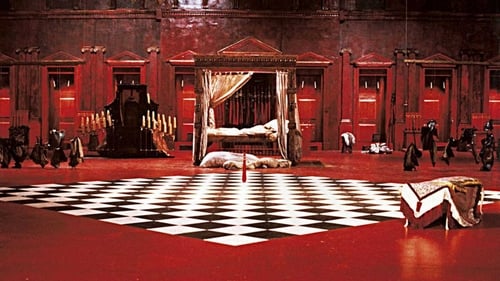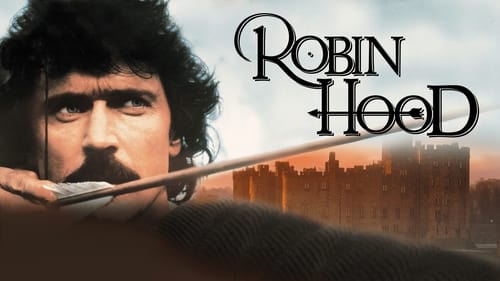
Stage Director
Renée Fleming makes her highly anticipated return to the Met in the world-premiere production of Pulitzer Prize–winning composer Kevin Puts’s The Hours, adapted from Michael Cunningham’s acclaimed novel. Inspired by Virginia Woolf’s Mrs. Dalloway and made a household name by the Oscar-winning 2002 film version starring Meryl Streep, Julianne Moore, and Nicole Kidman, the powerful story follows three women from different eras who each grapple with their inner demons and their roles in society. The exciting premiere radiates with star power, with Kelli O’Hara and Joyce DiDonato joining Fleming as the opera’s trio of heroines. Phelim McDermott directs this compelling drama, with Met Music Director Yannick Nézet-Séguin on the podium to conduct Puts’s poignant and powerful score.

Director
Philip Glass’ opera “Akhnaten”, premiered in Stuttgart in 1984, forms the third part of the portrait opera trilogy about personalities who have influenced the course of human history. The conclusion of the trilogy deals with the ancient Egyptian pharaoh Akhenaten, who attempted to establish a kind of monotheistic cult around the god Aton during his reign in the 14th century BC, but failed due to the resistance of the priesthood. The production presented here was undoubtedly one of the very great successes of the 2019/20 season at New York’s Metropolitan Opera, due not only to the outstanding cast of singers (led by countertenor Anthony Roth Costanzo) but also to Phelim McDermott’s imaginative staging, which captivates with sometimes breathtaking imagery.

Production Design
Philip Glass’ opera “Akhnaten”, premiered in Stuttgart in 1984, forms the third part of the portrait opera trilogy about personalities who have influenced the course of human history. The conclusion of the trilogy deals with the ancient Egyptian pharaoh Akhenaten, who attempted to establish a kind of monotheistic cult around the god Aton during his reign in the 14th century BC, but failed due to the resistance of the priesthood. The production presented here was undoubtedly one of the very great successes of the 2019/20 season at New York’s Metropolitan Opera, due not only to the outstanding cast of singers (led by countertenor Anthony Roth Costanzo) but also to Phelim McDermott’s imaginative staging, which captivates with sometimes breathtaking imagery.

Director
British director Phelim McDermott offers the audience a new take on the culture of the people of Ancient Egypt in Aida, one that allows us also to question the world in which we live. This new perspective entails a number of bold creative choices that do not make use of the traditional staging imagery associated with Aida. Aida’s command to Radames — “Ritorna vincitor!” — comes at a price. The triumphal march of the victorious Egyptians is a procession for the coffins of the heroes fallen in battle, the chorus are their grieving kinsfolk. McDermott’s staging resonates keenly with the images of so many civilian and military funerals that crowd our newsfeeds. Here is a triumphal march that does not seek to hide the true, lethal and disastrous nature of war, whatever side you are on.

Director
The last days of the American icon Walt Disney form a powerful and poignant subject for Philip Glass's latest opera, which was filmed at its first performances in Madrid in January 2013.

Director
A contemporary take on the 17th-century genre of the pastiche, this delightful Baroque fantasy brings together some of the greatest arias and ensembles by Handel, Vivaldi, Rameau, Purcell, and other composers with a new English libretto by Jeremy Sams, inspired by Shakespeare’s The Tempest and A Midsummer Night’s Dream. The all-star cast is headed by David Daniels as Prospero, Joyce DiDonato as Sycorax, Danielle de Niese as Ariel, Luca Pisaroni as Caliban, and the legendary Plácido Domingo as Neptune. Early music specialist William Christie conducts this dazzling world-premiere production, designed and directed by Phelim McDermott and Julian Crouch.

Production Design
Following the success of his first foray into opera, Einstein on the Beach, revolutionary American composer and musician Philip Glass soon turned to another great figure of the 20th century for inspiration. Set to lines from the Hindu Bhagavad Gita, Satyagraha depicts scenes from the life of Gandhi as he developed his philosophy of non-violent resistance in South Africa between 1896 and 1913. The opera became the second installment of Glass’s Portrait Trilogy, focused on innovators from across history. Satyagraha arrived at the Met during the 2007–08 season, when director Phelim McDermott made his debut with a production that employed everyday materials like newspaper and corrugated tin to create towering puppets and striking tableaus. In 2011, his staging returned, this time recorded live in HD. In this performance, tenor Richard Croft gives a moving performance as Gandhi, leading a remarkable ensemble cast conducted by Dante Anzolini.

Director
Following the success of his first foray into opera, Einstein on the Beach, revolutionary American composer and musician Philip Glass soon turned to another great figure of the 20th century for inspiration. Set to lines from the Hindu Bhagavad Gita, Satyagraha depicts scenes from the life of Gandhi as he developed his philosophy of non-violent resistance in South Africa between 1896 and 1913. The opera became the second installment of Glass’s Portrait Trilogy, focused on innovators from across history. Satyagraha arrived at the Met during the 2007–08 season, when director Phelim McDermott made his debut with a production that employed everyday materials like newspaper and corrugated tin to create towering puppets and striking tableaus. In 2011, his staging returned, this time recorded live in HD. In this performance, tenor Richard Croft gives a moving performance as Gandhi, leading a remarkable ensemble cast conducted by Dante Anzolini.

Narrator (voice)
A sweet reminiscence about a family of four children and their RAF-veteran dad, who knows the timetable of every bus in London, but realizes his large family needs a car. He buys a Peugeot station wagon - license plate GFP831E, and the family sets off for annual holidays exploring every corner of Europe - "adopting local customs but never forgetting who won the war." The narrator is one of the children who, as he ages, sees things he missed as a lad - the car no rocket, dad no speedster. As the years wear on, and the car sits in the driveway, dad keeps it ready for the next great summer holiday.

The First Tutor
Set halfway through the 17th century, a church play is performed for the benefit of the young aristocrat Cosimo. In the play, a grotesque old woman gives birth to a beautiful baby boy. The child's older sister is quick to exploit the situation, selling blessings from the baby, and even claiming she's the true mother by virgin birth. However, when she attempts to seduce the bishop's son, the Church exacts a terrible revenge.

Jester
The Swashbuckling legend of Robin Hood unfolds in the 12th century when the mighty Normans ruled England with an iron fist.









